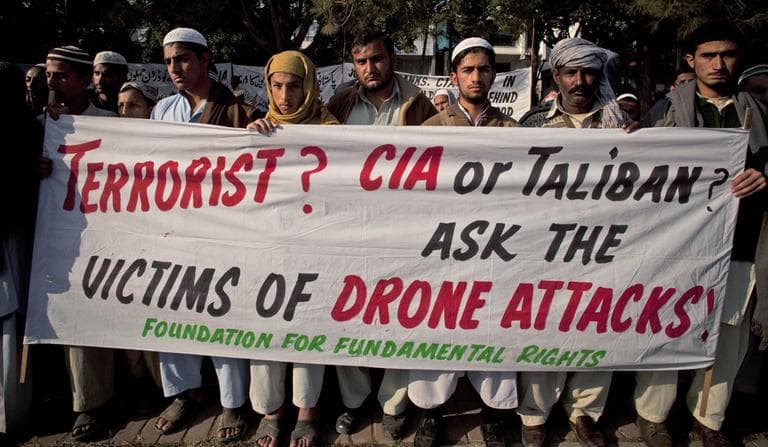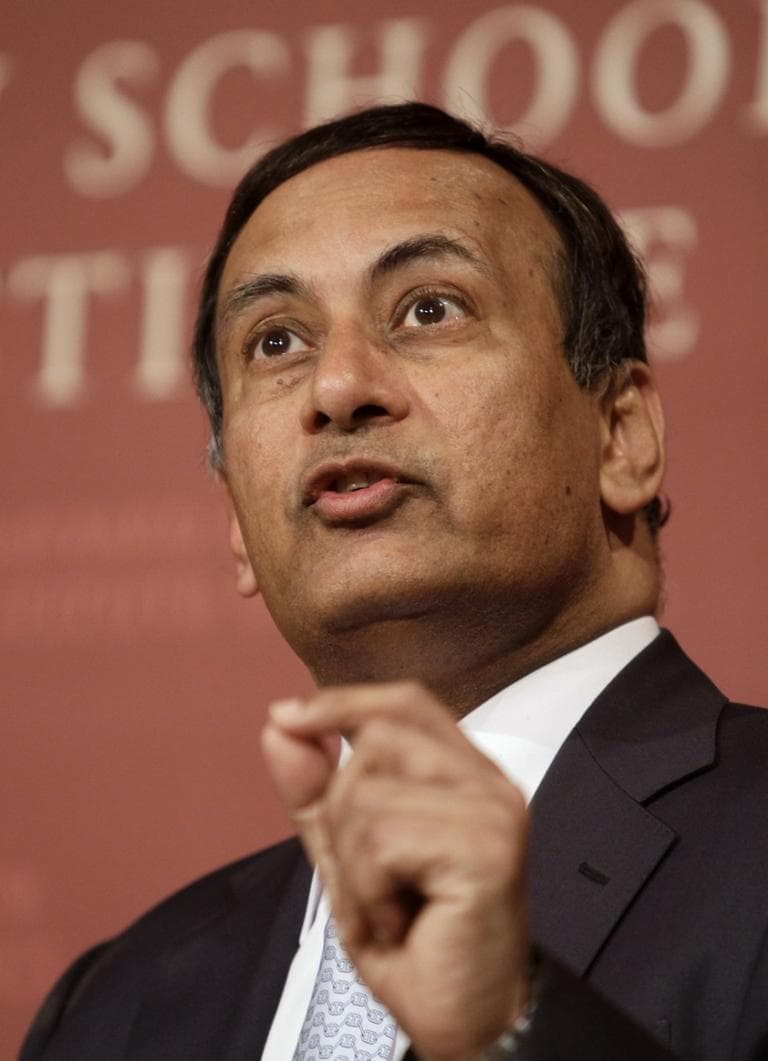Advertisement
Should The U.S. And Pakistan Break Up?
Resume
What can be done about the perennially troubled alliance between the U.S. and Pakistan?
Husain Haqqani, Pakistan's former ambassador to the U.S. says, break up! Get an amicable divorce! It's not hard to do.
Haqqani, who is now a Boston University professor and director of the school's Center for International Relations, says both the U.S. and Pakistan have been dissatisfied with their alliance for decades, with each country accusing the other of being a terrible ally.
Perhaps both are right, he says, and the best solution may be for the countries to end the alliance and find another relationship.

As he put it at the Center for the National Interest in Washington, D.C. last year, "If in 65 years, you haven't been able to find sufficient common ground to live together, and you had three separations and four reaffirmations of marriage, then maybe the better way is to find friendship outside of the marital bond."
Haqqani became Pakistan's ambassador to the U.S. in 2008, and was forced to resign his post and leave Pakistan in 2011, amid charges of disloyalty to the country. He says those charges show how dangerous it is in Pakistan to be seen as merely friendly toward America.
Meantime, a democratically elected government in Pakistan has completed a full term for the first time in the country's 65-year history.
Elections are due to take place May 11, setting the stage for another first in Pakistan: a democratic transfer of power.
Topics sure to come up in the election include a sharp increase in violence against Pakistan's religious minorities, a sluggish economy, the upcoming U.S. withdrawal from neighboring Afghanistan and the country's relationship with the U.S.
The election includes personalities such as the current prime minister, Raja Pervaiz Ashraf; his main opponent Nawaz Sharif, who was once ousted by a military coup, but has become close to the military since; and the country's former military dictator, Pervez Musharraf, who has vowed to return from exile to contest in the elections.
Then there is Muhammad Tahir-ul Qadri, a charismatic preacher, and Imran Khan, a cricket-star-turned-maverick-politician who has capitalized on anti-American, anti-drone strike sentiments. Some people have seen Khan as an apologist, if not an ally of militants, while others say he will emerge stronger from the election.
- By Husain Haqqani: Breaking Up Is Not Hard to Do
- Foreign Affairs: The Pakistani Military's New Coup Playbook
- Foreign Affairs: What five years of civilian governance in Pakistan looks like
What would a functional relationship between the U.S. and Pakistan look like?
Tell us on Facebook.
Guest:
- Husain Haqqani, professor and Director of the Center for International Relations at Boston University. He was Pakistan's Ambassador to the U.S. from 2008 to 2011.
This segment aired on March 20, 2013.